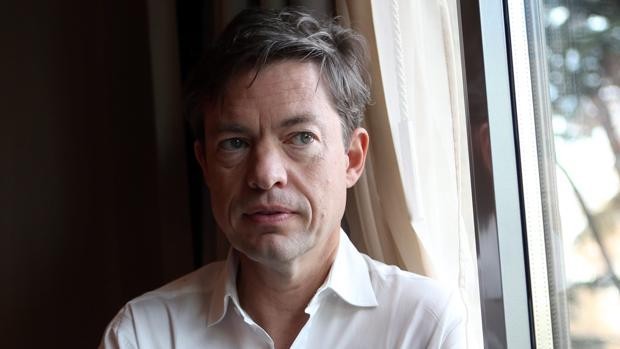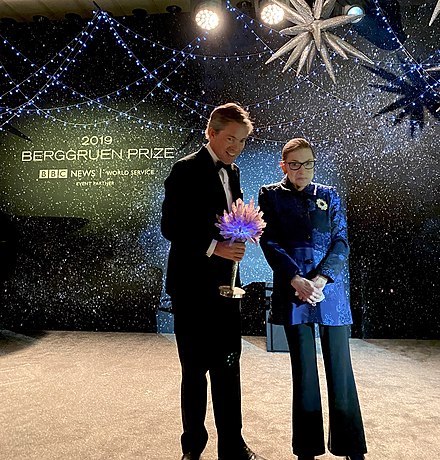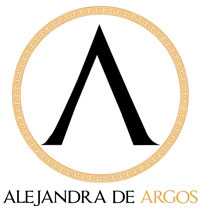Nicolas Berggruen (1961) is the founder and chairperson of Berggruen Holdings and the interdisciplinary think-tank, the Berggruen Institute, where scientists, economists, philosophers and artists from around the world engage and put forward proposals to tackle the 21st-century challenges facing humanity. Among the issues raised against the technifying, globalization and capitalist background of our time is that of how we see ourselves and recognize the other person in all their fullness from a moral perspective.

Nicolas Berggruen. Foto: Ernesto Agudo
Nicolas Berggruen (1961) is the founder and chairperson of Berggruen Holdings and the interdisciplinary think-tank, the Berggruen Institute, where scientists, economists, philosophers and artists from around the world engage and put forward proposals to tackle the 21st-century challenges facing humanity. Among the issues raised against the technifying, globalization and capitalist background of our time is that of how we see ourselves and recognize the other person in all their fullness from a moral perspective. On a plane beyond that of the spatial and temporal cultural relativism, Western and Eastern wisdom combine in his thought, which is articulated with practical proposals geared towards implementing good governance in a world undergoing profound transformations.
In 2010, his philanthropic conviction saw him make an important commitment to the Warren Buffet and Bill and Melinda Gates led initiative, “The Giving Pledge”: giving the major part of his wealth during his lifetime, through the Nicolas Berggruen Charitable Trust, to help solve some of the most pressing problems facing humanity. His passion for philosophy is readily attested to by his creation of the Berggruen Prize for Philosophy and Culture, comprising a million dollar donation to thinkers whose ideas and commitment help the world to progress in a more human fashion.
Co-author with Nathan Gardels of the book Intelligent Governance for the21st century, which was hailed by the Financial Times as one of the best books in 2012, he has just published, once again together with Gardels, his book Renovating Democracy (Nola Editores).
Could you start by pointing out the most serious problems affecting our Western democratic system in the age of globalization and digital capitalism?
To my mind, the good thing about democracy is that it gives everyone a voice and the bad thing is that it gives everyone a voice. In the past, we had a potentially more direct dynamic. We had dominant political parties and traditional media that were the editors or the filters who would be the intermediaries with the general public. With social media, this has disappeared because people, including politicians, talk directly to each other. This creates an incredibly dynamic environment. We could say super-democratic because everybody has access and everybody has a voice. This happens in advanced democracies like Spain and in places around the world where democracy is much more recent. It is actually a very liberating and wonderful thing, but at the same time, it all becomes very confusing because the traditional editors and filters are no longer present. On one side, it's an explosion of voices and a part of what democracy should be about. On the other side, that same explosion can lead to a wild situation in which it becomes harder to bring people together. As opposed to bringing people together, it can tear people apart. That is really the issue today.
So, how do you manage everyone's podium?
If we can bring all these people together to think about the issues, debate them, and ultimately vote on them in a reasoned way, then in the long term, it will be good for everyone. Another problem is the politicization of what should not be politicized, such as scientific issues like COVID, which is a health issue and should remain so. Scientists and relevant government offices should deal with certain things like health. There are two problems here: one, everything is politicized, and people don't want to listen to and trust health authorities, and two, in today's democratic world, there is less and less trust in government. This is a profound problem in the U.S., where trust in government has decreased, and it has become a vicious cycle because this lack of trust makes it more difficult for the government to function. This, in turn, makes it less attractive to work for governments, so you have less talent. A lack of talent means performance suffers, and when this happens, people like the government less, which makes sense. And it goes down and down from there. So democracy, in a way, is undermined from within. In short, what we have is a domino effect.
You highlight the impact of the information revolution and social networks on governance and how social problems are reduced to slogans that spread among those who think alike instead of using argumentation and dialogue to reach a consensus. Could you tell me more about your ideas in which the IT sector can help innovate today's democracy?
There are two aspects to this. One is that there should be innovation in governance, and the other is the management of social networks. In terms of innovation, the idea would be to have citizen forums debating different issues and then recommending their conclusions to voters, governments, and bureaucrats. The problem we see is that the most engaged people are the most vocal and not the majority. This is the problem with involving people digitally. On the social media side, the issue is that we need an editor. The question today is, who? To take an extreme example: in China, the government is the editor. We don't want that. In the West, the editors right now are the social media platforms - Facebook, Instagram, Twitter, or Meta, for example. Since they are not necessarily the best editors, the question becomes, who is? Is it the government, and to what extent? Europe has regulated technology platforms, although this hasn't helped the much-needed editing process much. So, will the citizens themselves edit by getting involved in a different way? There have been similar phenomena in the past, and over time society has managed them. The solution will have to be a combination of government regulation to make information more transparent and, as the most popular publications are the ones that get the most attention, platform regulation to reduce the connection between popularity and distribution.
As a result, a polarization of representative democracies in the West has produced an institutional crisis leading to the emergence of populism and nationalism. How do you feel about this in Europe?
I think that, unfortunately, populism is on the rise. Northern Europe is more right-wing, and southern Europe is more left-wing, but it is a reaction in both cases. A reaction, I would say, born out of frustration, anxiety, and fear. Fear of the future, fear of change. We have had decades of globalization and technological advances. Advances go at a digital pace and are probably too fast for humans. People become fearful. They don't want to change, and they don't want anything new. They want to go back to what they consider to be a better and very often traditional past. So they react politically and adopt a very marked attitude towards the left or the right. It is an instinct of fear, and it is simplifying things because most people would like to believe in something that inspires them, that is quite simple, and allows change. Today's big problem is that the extremes, left and right, which are the edges of society, are hijacking the center. Even if we have ten or fifteen percent on the edges, they become so powerful and their voices so loud that the majority of the center is hijacked. People have always said that democracy is the tyranny of the majority, but what has happened and what is perverse is that, in many democracies, it is the tyranny of the minorities because their voices stand out more, not only in Europe but in all democracies.
Another of humanity's great challenges is reversing the climate crisis and the loss of biodiversity around the globe. The Berggruen Institute is working on this. Having seen the G20 Summit and COP26 recently take place, do you think we are in time?
We are late. And the planet doesn't wait, so I think we are super late. The question is, how do we deal with a planetary crisis that we are all, including governments, aware of? Look at COVID, we had a global health crisis, and nobody cooperated, every country for themselves, in essence. The same issue is happening with climate change. There is some cooperation and some action because governments and civil society are aware and afraid to the point where they are beginning to take action, but not enough. Market mechanisms such as carbon credits and taxes need to be adopted without a doubt, and there are technological advances that will help, but it's a gamble. Will they get there in time? We are gambling with the planet. I would say the political will is there in terms of intentions, but not necessarily action. We at the institute have been working on this for a long time. We are concerned with practical solutions. For example, we have a program that has been in place for some time between California and China. In the U.S., at least during the last administration, there was really no will at the Washington level to do anything, but at the state level, especially California, there has always been concern about climate or the environment. Nevertheless, you cannot only have climate action in the U.S.; you also need other big countries. Today's biggest polluter is China, so we need their participation alongside that of India and many others.
The Berggruen Institute also contributes through philosophy, art and technology to help us adapt to the speed of change affecting all dimensions of the human condition. Artificial Intelligence and Biotechnology are transforming the way we think of ourselves as human beings. What are your perspectives on this?
Some technologies such as artificial intelligence or gene editing will fundamentally, or potentially, transform the nature of humans. This may be the first time in history that humans can play God. We can self-transform. Through gene editing, we can transfer or change embryos, and we can change genetic lines. With AI, we will be able to potentially create other agents that are just as capable as us in certain areas or that augment our capabilities, and we can even combine the silicon base. So the problem is not only becoming more powerful. What is interesting, based on our experience, is that technologists show a very optimistic and very naïve attitude in which technology will solve everything and be good for everybody, but they don't look at the unintended consequences. We also see that the government lags way behind, especially in the U.S. They don't understand the technology. So what we have tried to do is to have an active dialogue between policymakers, scientists, technicians, companies that produce these things, economists, philosophers, and artists who all have totally different views. The idea is simple: we need philosophy for technology.
To this end, you have created the Berggruen Prize for Philosophy and Culture, endowed with one million dollars. This year it has gone to the Australian philosopher Peter Singer. Can you explain why he was chosen? You could say it's akin to a Nobel Prize for Philosophy.
Thank you, this is exactly the aim. We started the prize five years ago to say, listen, philosophy and thinking are just as important as economics and physics. Therefore the idea is a little bit, as you say, like a Nobel Prize for philosophers. What we have been doing for years is awarding prizes to different people. This year the jury selected Peter Singer, an Australian philosopher who argues that although humans are wonderful, the world should not be so human-centric anymore. We affect the planet, as well as others, including animals, and we have got to have respect for other species. Among ourselves, we've got to treat each other as human beings, and we have to treat other species with respect as well. It all boils down to responsibility.

Nicolas Berggruen and Justice Ruth Bader Ginsburg in 2019.
What does the Berggruen Museum in Berlin, which houses the collection that your father, Heinz Berggruen, built up with genuine treasures of modern painting, including countless artworks by Paul Klee, Henri Matisse, Alberto Giacometti, or more than 120 Picasso pieces, among others, mean to you?
Well, Spain is very well represented. Most of the works on display at the Berggruen Museum in Berlin are by Picasso. My father was from Berlin, and that's why the museum is there. He was passionate about art, and he collected works from the 20th century and very classical artists: Picasso, Matisse, Giacometti, Paul Klee, Cezanne, and they all ended up in Berlin. The family, which includes me, has decided that we should continue giving our help and support. We have continued to acquire works by artists that fit with the museum, including Picasso, and fortunately, the museum is alive. It's interesting because, honestly, in Spain, you have some museums that are also supported by families, like the Thyssen in Madrid or Picasso museums supported by the Picasso family. Berlin is a very dynamic city culturally, and we try to play that role with the museum.
To summarize: Changing the world through ideas - could you give me some final thoughts on this?
I very much believe that ideas change the world. At the very least, they change the way we think and function as humans. If you look back through history, you see that most of the things that happen to us as humans in our societies and cultures have come from a few thinkers, and this has been true forever. The big things that have shaped our lives have largely come from religious philosophers or thinkers. In the West, we still live in the world defined by Socrates, by Aristotle, by Jesus Christ, and, more recently, thinkers like Kant, Nietzsche, or Karl Marx. In the East, you have the same, you have Lao Tzu, and you have Confucius. You have different thinkers who have shaped the way China is functioning today. So the inference of ideas is totally predominant. I really think ideas shape the world more than anything else, so the institute tries to give power to people who develop ideas. Sometimes the ideas are great, and sometimes the ideas are terrible, but they shape the way we go. Sometimes you don't know for a century whether the idea is good or not, and very often, the most influential thinkers are not very popular. By the way, all the people I have mentioned were not popular at all during their lifetimes. Jesus Christ died on a cross, Socrates was condemned and poisoned, and Confucius was in exile, same with Lao Tzu. They didn't have a good time then, which is why we need to support them now.
- Interview with Nicolas Berggruen - - Alejandra de Argos -



